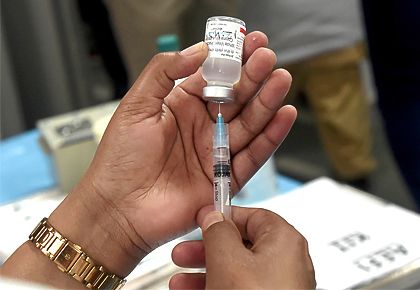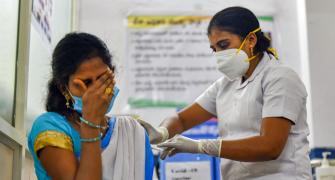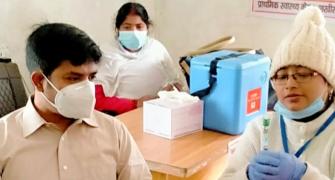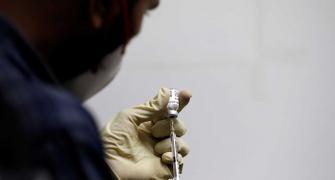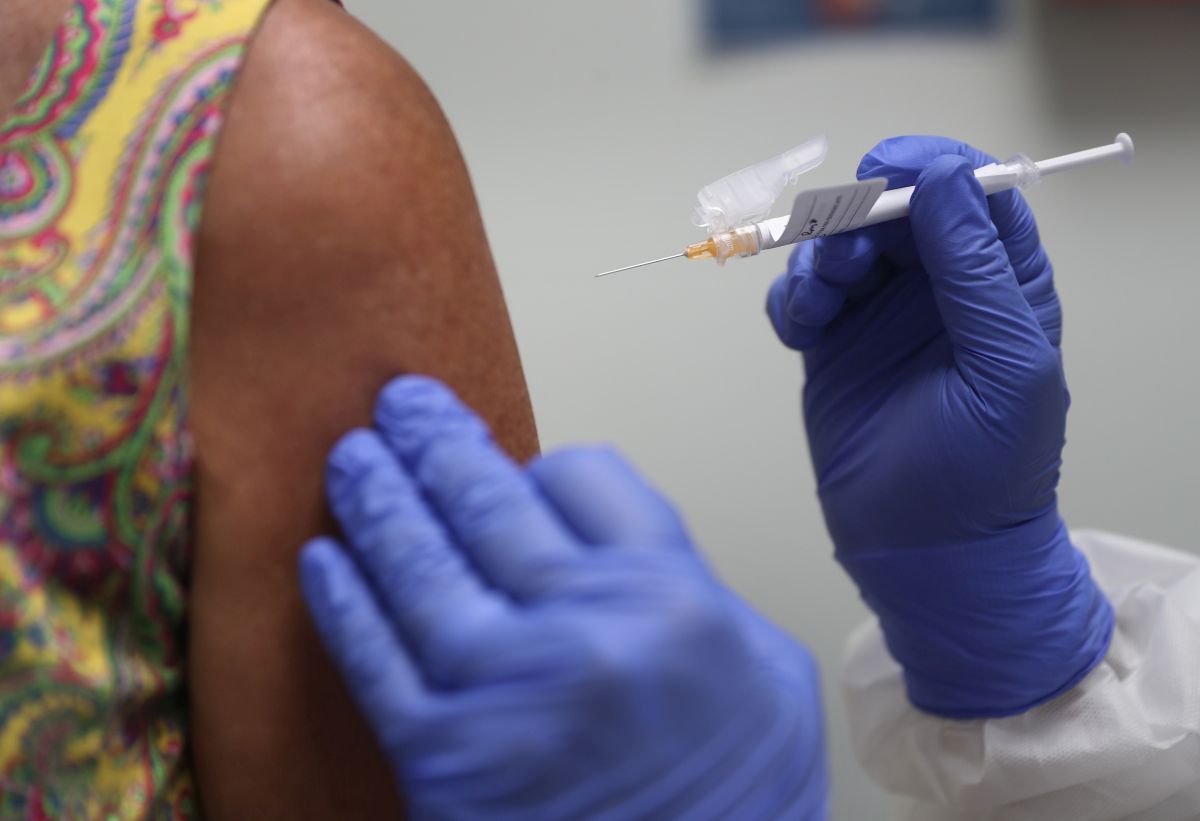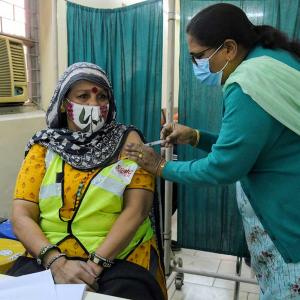'At the stage where we are in today in the country, by the time mass vaccination becomes available, it would be around the middle of next year.'
'Most of those people, who got infected this year, will be next year back to level zero -- once again susceptible.'
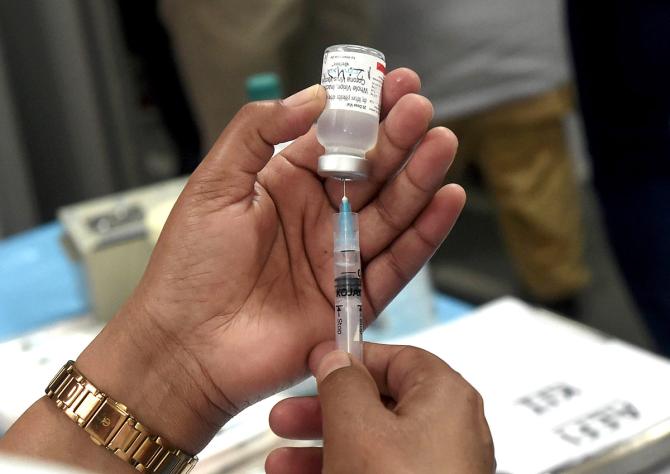
Dr G V S Murthy is the director, public health at the Public Health Foundation of India/Indian Institute of Public Health, a well-known non-profit striving towards a 'healthier India'.
Simultaneously he is a professor in public health disability with the International Centre for Eye Health at the London School for Hygiene and Tropical Medicine, London.
Dr Murthy earned his degree in medicine and his specialisations from Guntur, New Delhi and London and is a public health physician by discipline.
Even as he works on more routine public health issues, related to diabetes or eye problems, Dr Murthy provides technical advice on COVID-19 to WHO and is a member of technical advisory groups on COVID-19 in India.
"I hope you are using a mask regularly?! I would not talk to you if you are not wearing a mask!" Dr Murthy gruffly warns Vaihayasi Pande Daniel/Rediff.com.
So, folks, masks are here to stay for the time being, even if vaccines are destined to make all our tomorrows much better.
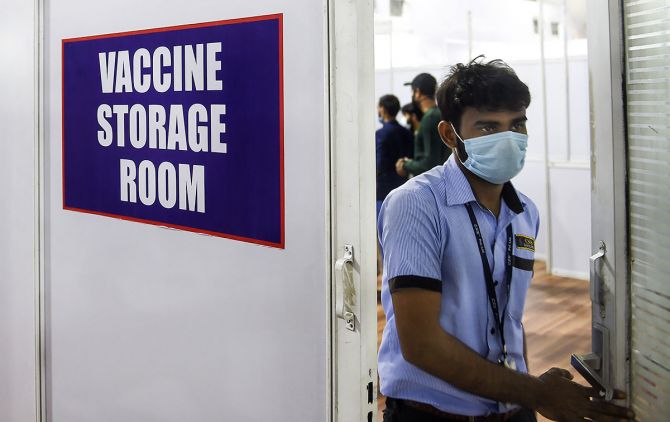
As per various people that I have spoken to it seems that it's going to be difficult for India to go the Pfizer way.
Pfizer and Moderna, as I told you right in the beginning, needs -70 C cooling.
So, therefore they are not possible in India.
The only place you can give it is in the urban population.
The politicians and the richer people may be able to come into a hospital and get the shot there, where they will be in a controlled environment and at -70 C, the vaccine is taken out and immediately injected.
That sort of a thing can only be done for a small proportion of the population, who are rich, who can afford it, and who have the political bandwidth to get that vaccine.
Otherwise, to get any of the mRNA vaccines* -- that is both the Moderna or Pfizer vaccines -- in India is logistically next to impossible.
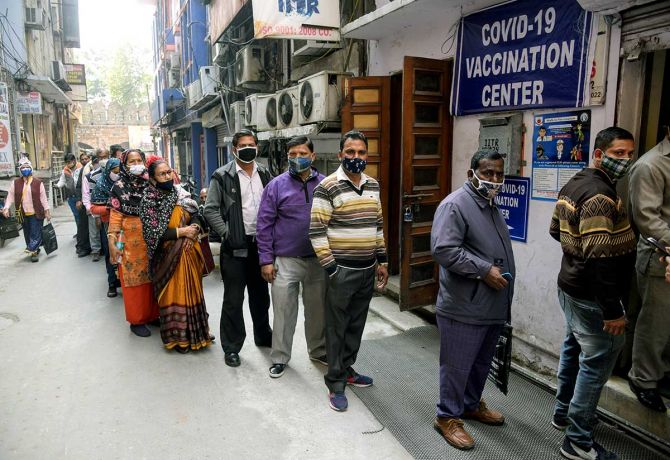
There are so many people to vaccinate.
Then we have had so many asymptomatic people and so many people who have had it.
I believe they are going to vaccinate everybody, whether they have had it or not?
Once you have got infected by COVID-19, how long does the protection last against getting infected again?
That's a very important question.
Because from what we know, the antibodies -- called neutralising antibodies, that protect you against getting infected again -- those don't seem to last more than six months.
There is a very short window in which they would be perhaps be protecting you or not allowing a new COVID-19 virus to attack you.
But after six months, there is no protection.
And at the stage where we are in today in the country, by the time mass vaccination becomes available, it would be around the middle of next year.
Most of those people, who got infected this year, will be next year back to level zero -- once again susceptible.
The easiest is forget who got infected and immunise them all.
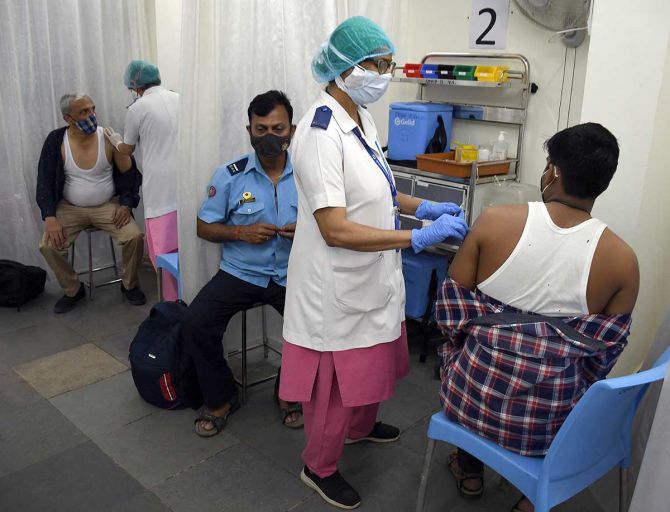
How do the mRNA vaccines -- the ones developed by Pfizer and Moderna -- compare with the killed virus vaccines?
The mRNA vaccine, Moderna and Pfizer, are not going to lead to infection (after a person receives it).
They are not using the germ at all ie the virus is not being injected.
It is about synthetically developing one protein to act against one protein on the cover or covering layer of the SARS-CoV-2.
So that is being synthetically manufactured.
The mRNA is a genetic modification.
You're just manufacturing that.
You're not injecting the bacteria or virus at all, unlike polio or cholera, where you are either killing the potency and then administering.
These two vaccines are not using the organism at all.
So, they are not going to give you any infection, that is for sure.
What can give you infection is the type of vaccine that is being made ICMR Bharat Biotech, which is using an inactivated, killed virus.
With the vaccine using the inactivated, killed virus, to explain it in the simplest terms, you have the organism, you kill it using chemicals and then develop a vaccine from that.
To some we add aluminium, because aluminium is a good carrier for the inactivated viruses or bacteria.
For instance, the tetanus toxoid injection that you take, that is with aluminum.
It is an inactivated aluminum-based vaccine.
Now, the killed inactivated virus vaccine should not generally give you infection (after you are inoculated), because they're inactivated.
But there could be very rare instances of a few people, who may get the inactivated virus and the virus may get active and may give infection.
But that sort of a thing will happen in one in a million cases
Routinely, it will not cause infection.
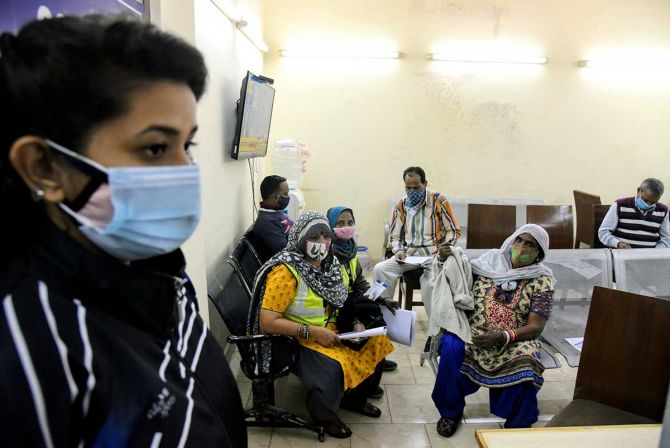
But it is not comparable to the mRNA vaccines?
The biggest challenge is that the killed, inactivated vaccine will not give you a very good immunity also.
That is where the problem is.
It is a very poor vaccine.
It is much cheaper to make.
But it gives you very poor protection in the community.
That means that even after you have the vaccine, you have to be very careful with your hygiene practices that you have going today, your mask, your distancing.
This killed virus vaccine is only acting as an additional layer of protection.
Ie a vaccine with such moderate effectiveness should be considered as an additional layer of protection against severe COVID-19 and ALL other measures that are being followed for personal protection should continue.
The best protection comes from the vaccines which are being given in the US.
To use that, we have to be able to provide -70 C vaccination vans, -- I would call it that -- into which people come in and get their dose and the van goes in the villages -- just like all your snowman logistics and all these refrigerated vans.
It is going to be extremely expensive.
The country, I don't think, would be in a position to afford that vaccine.
Those vaccines are the best.
But let's look at something which is more optimum, can be produced at a lower cost and can be carried in a temperature of 0 to four degrees in cold boxes, just like our measles vaccine, DPT etc.
We can carry it.
Those are easier to deliver.
All our health workers are trained in giving DPT (combination vaccine against diphtheria, pertussis, and tetanus), BCG (against tuberculosis) and the measles vaccine.
Scaling up, for them to use something like the ICMR Bharat Biotech vaccine is easy.
But it will be a poor cousin of the vaccine used in the US.
*According to CDC US: 'mRNA vaccines are a new type of vaccine to protect against infectious diseases.
To trigger an immune response, many vaccines put a weakened or inactivated germ into our bodies.
Not mRNA vaccines.
Instead, they teach our cells how to make a protein--or even just a piece of a protein--that triggers an immune response inside our bodies.
That immune response, which produces antibodies, is what protects us from getting infected if the real virus enters our bodies'.
Feature Presentation: Ashish Narsale/ Rediff.com
